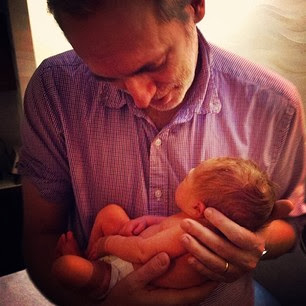From my review of The Wolf of Wall Street:—
Scorsese’s
sense of sin, from Whose That Knocking At My Door? on has always been from the
inside out. It’s not enough to show sin. Nor is it enough to tell the audience
that sin is sinful. Scorsese wants the audience to feel as if they have sinned
— exiting the theatre sheepish with our own enjoyment. His pitch-fork atunement to lives that
are both spiritually dead and, at the same time, astonishingly vital — rotten
but ripe, like apples in Dutch nature
mortes — is even more acute than it was when he made Goodfellas and Casino,
although he is not nearly as interested in the details of money-laundering, or bribery, as
he was in those pictures. Winter’s
script make no attempt to explain Belfont’s scams to us — several times,
he tries, and then gives up, with a wave of his hand, “you don’t give a shit,
do you?” — and the line gets at what is so shallow about Wolf of Wall Street and most gleeful. Whatever depths it possessed do not
come from the world of finance, just as Raging Bull’s depths did not come from
the world of boxing, but from the intimate knowledge of his own
self-destruction that Scorsese experienced in the seventies as he rose,
meteor-like, to drug-fuelled, Palme—D’Or-winning heights, before burning up in his own heat. This is
the story behind Raging Bull and Goodfellas and Casino, too. It is burned into his psyche — the only story really worth telling. Any time Scorsese’s
filmmaking gets near this arc, it catches fire spectacularly and the movie takes off in a shower of sparks, but with slightly less sense consequence and greater giddiness each time, as the memory of the lows fade and the highs burn in retrospect ever
brighter. In The Wolf of Wall Street the 71-year-old director films as
if sucking the sap from his stripling actors. Make no mistake: He is the
wolf. (A-)
Approaching the final chapter of my Scorsese book, my listing of his films has altered a little. The top five are unaltered, but
The Last Waltz has risen (as have all the docs) and
The Wolf of Wall Street has snuck into the top ten.
The Departed has slipped a little.
1. Taxi Driver
2. Goodfellas
3. Mean Streets
4. Raging Bull
5. Alice Doesn't Live Here Anymore
6. Italianamerican
7. The Departed
8. The Last Waltz
9. The Color of Money
10. The Wolf of Wall Street
11. Casino
10. The King Of Comedy
13. Kundun
14. The Age of Innocence
15. Who's That Knocking at My Door?
16. After Hours
17. Shine a Light
18. Bringing Out The Dead
19. The Last Temptation of Christ
20. Shutter Island
21. Boxcar Bertha
22. Hugo
23. New York, New York
24. Gangs of New York
25. The Aviator
26. Cape Fear



































,%202023.jpg)













